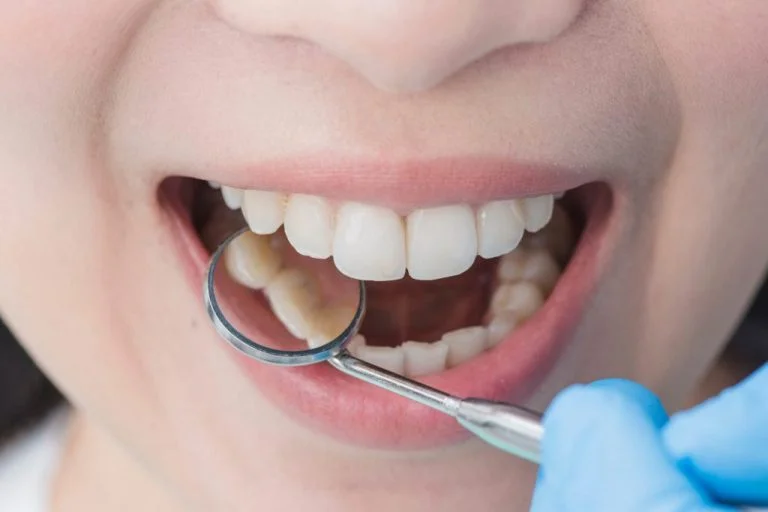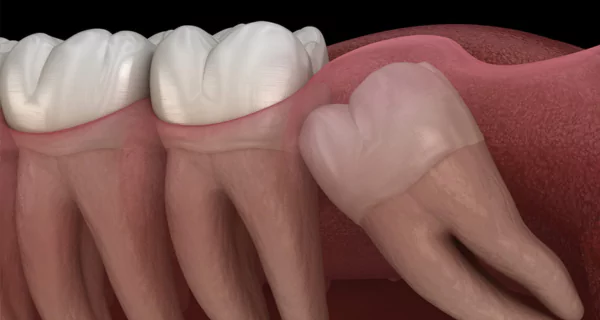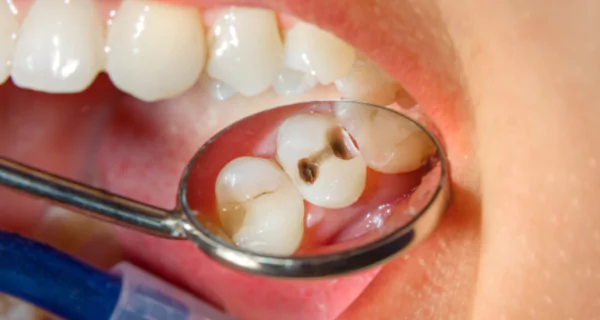Last Updated on: 2nd January 2026, 08:27 am
Wisdom teeth typically come in between ages 17 and 25. Their eruption can cause discomfort or complications like crowding or impaction, depending on jaw space and alignment.
Wondering when wisdom teeth will come in? Learn about the timing, symptoms, and complications of wisdom teeth eruption, plus tips to manage the process.
Growing up is an exciting journey filled with mental, physical, and emotional challenges. Part of the process involves dealing with common health issues, such as the arrival of wisdom teeth. These teeth often spark curiosity and, at times, concern, as they represent a significant milestone in dental development.
Wisdom teeth, or third molars, are the final teeth to emerge in the back corners of your mouth. Their arrival often signals the last phase of dental development. Understanding when wisdom teeth come in, the symptoms they cause, and how to manage any complications will help ease this transition and ensure better oral health.
This article explores the timing, symptoms, and common concerns associated with wisdom teeth, along with practical tips for managing discomfort and recognizing when to seek professional care.
What are wisdom teeth?
Wisdom teeth, also known as the third molars, are located at the very back of the mouth, with one in each corner. They are considered a remnant of an earlier stage in human evolution. During that time, our ancestors relied on extra molars to chew tough, unprocessed foods like roots, raw vegetables, and uncooked meat.
However, changes in diet and smaller jaw sizes have made wisdom teeth less functional today. Their eruption often leads to complications; they are notorious for becoming impacted (trapped beneath the gum line) or misaligned. This can result in pain, swelling, and potential damage to neighboring teeth or tissues.
When do wisdom teeth come in?
Wisdom teeth usually start to appear between the ages of 17 and 25, although the timing will vary widely from person to person. For some individuals, these teeth may begin to emerge as early as their late teens, while for others, they might not erupt until their mid-twenties or even later.
It is particularly fascinating that not everyone develops all four wisdom teeth, or any at all. Some individuals naturally lack one or more of these molars, a phenomenon attributed to both genetic inheritance and evolutionary changes. Over time, as human diets have shifted to softer, processed foods, and jaw sizes have become smaller, wisdom teeth have become less essential. This evolutionary trend explains why some people are born without them.
Factors that affect eruption timing
- Genetics: If one or both of your parents experienced early or delayed wisdom tooth eruption, there’s a good chance that you might follow a similar timeline. Genetic factors play a significant role in determining when and if your wisdom teeth emerge.
- Space in the jaw: The size of your jaw and the amount of space available in your mouth are critical factors. Individuals with larger jaws typically have more room for wisdom teeth to emerge without complications, allowing for a smoother and potentially earlier eruption. On the other hand, smaller jaws can restrict the space needed for these teeth to grow properly, often causing delays, misalignment, or impaction.
- Health and diet: Proper nutrition supports healthy dental development, while deficiencies in key nutrients, such as calcium and vitamin D, may slow the growth of teeth or delay their eruption.
What Are the Signs That Wisdom Teeth Are Coming In?
The eruption of wisdom teeth often comes with noticeable signs; understanding these symptoms can help you recognize the process and manage any discomfort effectively.
- Pain or discomfort: Mild to moderate pain at the back of the mouth is a common sign of wisdom teeth coming in. This discomfort results from the tooth breaking through the gum tissue and may become more intense when chewing or biting.
- Swollen or tender gums: The gums around a developing wisdom tooth often become inflamed, appearing red, swollen, and sensitive to touch. In some cases, the swelling can extend to the surrounding areas.
- Jaw stiffness: As wisdom teeth emerge, they exert pressure on the jaw, leading to soreness, stiffness, or difficulty in fully opening the mouth.
- Unpleasant breath or taste: Partially-erupted wisdom teeth can form pockets in the gums where food debris and bacteria accumulate, causing bad breath or a bitter taste.
- Headaches or ear pain: The pressure and irritation caused by erupting or impacted wisdom teeth can extend beyond the mouth, potentially triggering headaches or pain that radiates to the ears, particularly if the teeth are misaligned.
What Are the Most Common Problems with Wisdom Teeth?
While some individuals go through the eruption of wisdom teeth with minimal discomfort, many face challenges during this process. Here are the most frequent problems:
- Impacted wisdom teeth: Impaction occurs when a wisdom tooth cannot fully erupt due to lack of space or improper alignment. This can lead to pain, swelling, and potential harm to nearby teeth or tissues.
- Tooth crowding: Asd the wisdom teeth try to emerge, they can press against adjacent molars, causing crowding and shifting of other teeth. This is especially concerning for those who have previously undergone orthodontic treatment to align their teeth.
- Cavities and Decay: Wisdom teeth are located at the back of the mouth, making them difficult to clean effectively. As a result, they are more prone to plaque buildup, cavities, and gum disease.
- Infections: Partially-erupted wisdom teeth can trap bacteria, leading to gum infections such as pericoronitis. Symptoms include swelling, pain, and difficulty chewing.
Do wisdom teeth always need to be removed?
Contrary to popular belief, not all wisdom teeth require removal. In some cases, they can grow without causing any issues or complications.
When removal isn’t necessary
- The wisdom teeth are fully erupted and properly aligned.
- They are easy to clean and maintain through regular brushing and flossing.
- There are no signs of infection, decay, or harm to nearby teeth.
When removal is recommended
- Wisdom teeth are impacted, causing pain or swelling.
- They contribute to crowding or orthodontic relapse.
- There are signs of cavities, gum disease or recurring infections.
- X-rays show cysts or tumors developing around the tooth.
If removal is necessary, your dentist or oral surgeon will explain the procedure. The process typically involves minor surgery with a relatively quick recovery period.
How to manage wisdom tooth pain?
Wisdom tooth pain can be uncomfortable, but several effective remedies help manage the discomfort at home. Here are some practical tips:
- Saltwater rinse: Mix ½ teaspoon of salt with a cup of warm water and swish it around your mouth for 30 seconds. This helps reduce inflammation and kill bacteria. Repeat this process a few times daily for relief.
- Over-the-counter pain relievers: Medications like ibuprofen or acetaminophen can help ease pain and reduce swelling. Always follow the recommended dosage.
- Cold compress: Apply an ice pack to the outside of your jaw for 15–20 minutes to numb the area and minimize swelling. Repeat as needed, but allow time between applications to prevent skin irritation.
- Good oral hygiene: Brush and floss gently around the wisdom teeth to remove food particles and prevent infections. Consider using a mouthwash designed for gum health.
If the pain persists, worsens, or is accompanied by other symptoms such as significant swelling or difficulty opening your mouth, it’s important to consult your dentist. They can evaluate the situation and recommend further treatment if necessary.
When to see a dentist or oral surgeon?
While some mild discomfort is common as wisdom teeth emerge, certain symptoms could signal the need for professional attention:
- Intense or long-lasting pain.
- Swelling does not improve after a few days.
- Difficulty opening your mouth or problems with chewing.
- Signs of infection, such as pus, fever, or an unpleasant odor.
To evaluate the situation, your dentist will conduct a detailed examination, which may include X-rays, to determine the position and health of your wisdom teeth. Based on their findings, they may recommend monitoring the teeth, removing them, or treatment to address any identified issues.
Conclusion
Wisdom teeth are a normal stage of dental growth, but their emergence can bring various symptoms and challenges. Knowing what to expect and how to manage the process can help reduce discomfort and safeguard your oral health.
If you’re dealing with ongoing pain, swelling, or other concerns linked to your wisdom teeth, it’s important to seek advice from your dentist or oral surgeon. Addressing these issues early can help prevent more serious complications and keep your smile healthy for the long term.
Frequently Asked Questions
What age do wisdom teeth typically come in?
Do all wisdom teeth need to be removed?
How do I know if my wisdom teeth are impacted?
What’s the recovery time for wisdom tooth removal?
Can you prevent wisdom teeth from causing problems?
Voice and Search (Q&A)
What are the signs that my wisdom teeth are coming in?
You may feel pain or pressure in the back of your mouth, swollen or tender gums, jaw stiffness, or even headaches. These are common signs that wisdom teeth are starting to erupt.
Why do some people never get wisdom teeth?
Some people never develop wisdom teeth due to genetics and evolutionary changes. Smaller jaws and modern diets have made these molars less necessary, so they may not form at all.
What should I do if my wisdom teeth are causing bad breath?
Bad breath from wisdom teeth could be due to trapped food or infection. Try rinsing with salt water and maintaining good hygiene. If the odor persists, see your dentist.
Share
References
1. Norris, T. (2022, june 27). Wisdom teeth. Healthline. https://www.healthline.com/health/why-do-we-have-wisdom-teeth
2. Renton, T., & Wilson, N. H. (2016, july 29). Problems with erupting wisdom teeth: signs, symptoms, and management. The British journal of general practice : the journal of the Royal College of General Practitioners, 66(649), e606–e608. https://doi.org/10.3399/bjgp16X686509
3. Sissons, C., Veazey, K. (2024, june 19). Timeline and healing for wisdom tooth recovery. https://www.medicalnewstoday.com/articles/321657
4. Watson, K. (2024, august 7). Remedies for Wisdom Teeth Pain Relief. Healthline. https://www.healthline.com/health/wisdom-teeth-pain-relief
5. Zou, D., Zhao, J., Ding, W., Xia, L., Jang, X., & Huang, Y. (2009, january). Wisdom teeth: Mankind’s future third vice-teeth? Medical Hypotheses, 74(1), 52-55. https://doi.org/10.1016/j.mehy.2009.08.004
-
Nayibe Cubillos M. [Author]
Pharmaceutical Chemestry |Pharmaceutical Process Management | Pharmaceutical Care | Pharmaceutical Services Audit | Pharmaceutical Services Process Consulting | Content Project Manager | SEO Knowledge | Content Writer | Leadership | Scrum Master
View all posts
A healthcare writer with a solid background in pharmaceutical chemistry and a thorough understanding of Colombian regulatory processes and comprehensive sector management, she has significant experience coordinating and leading multidisciplina...




















